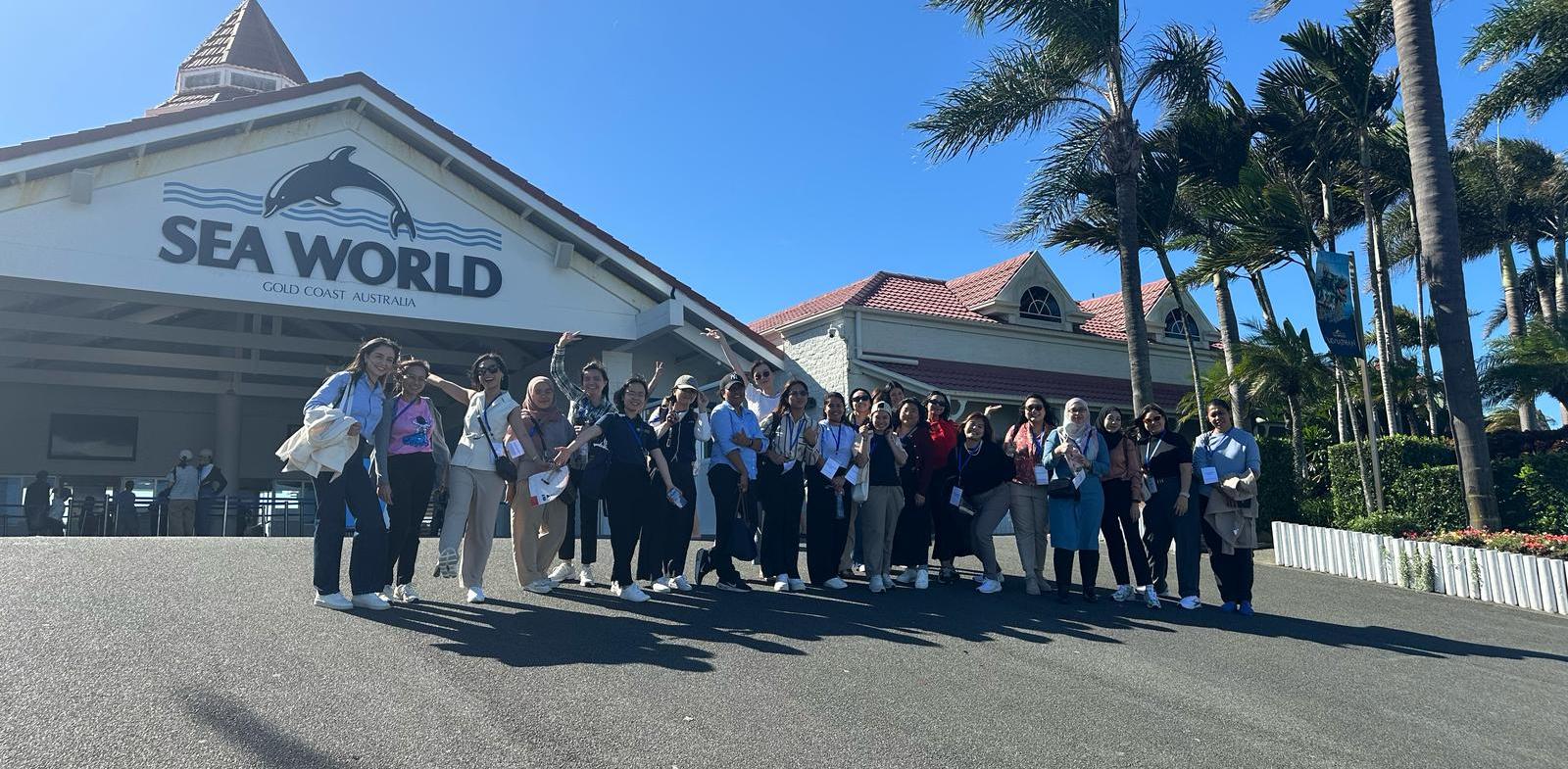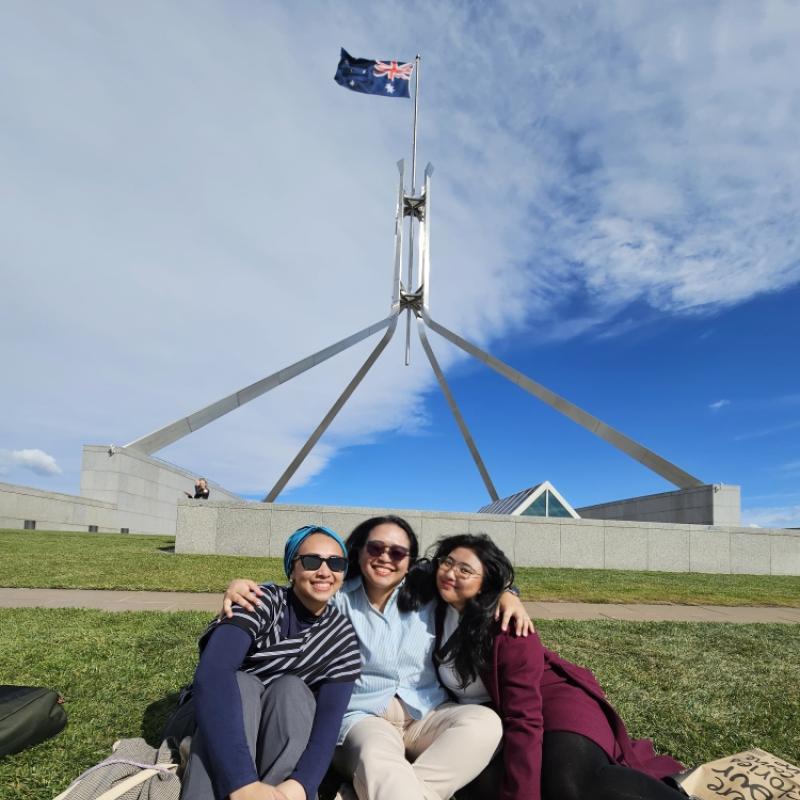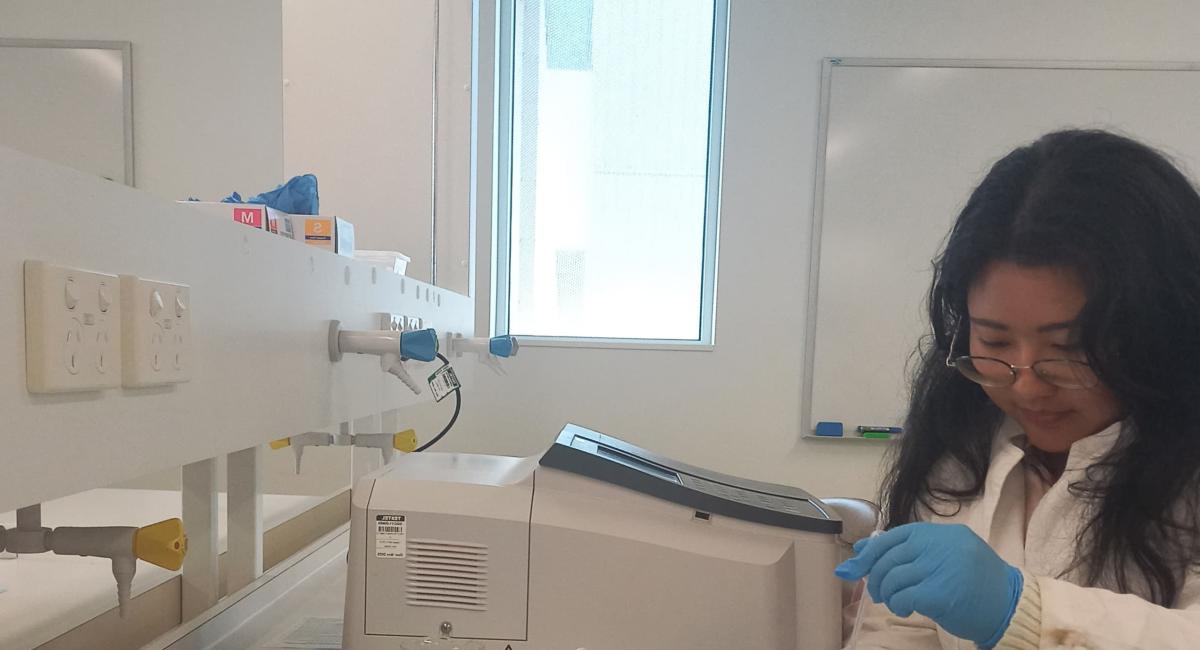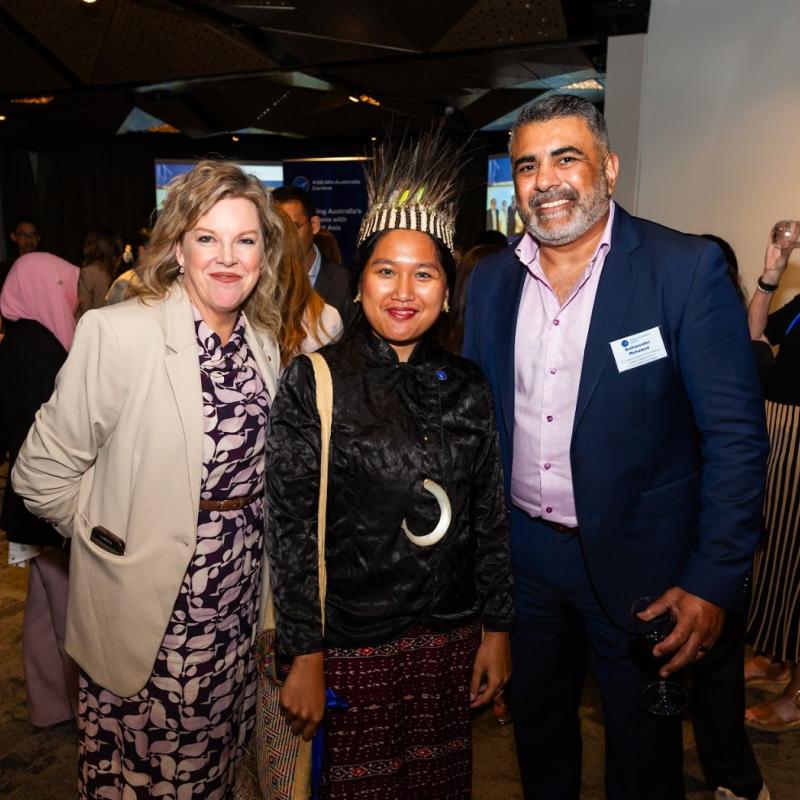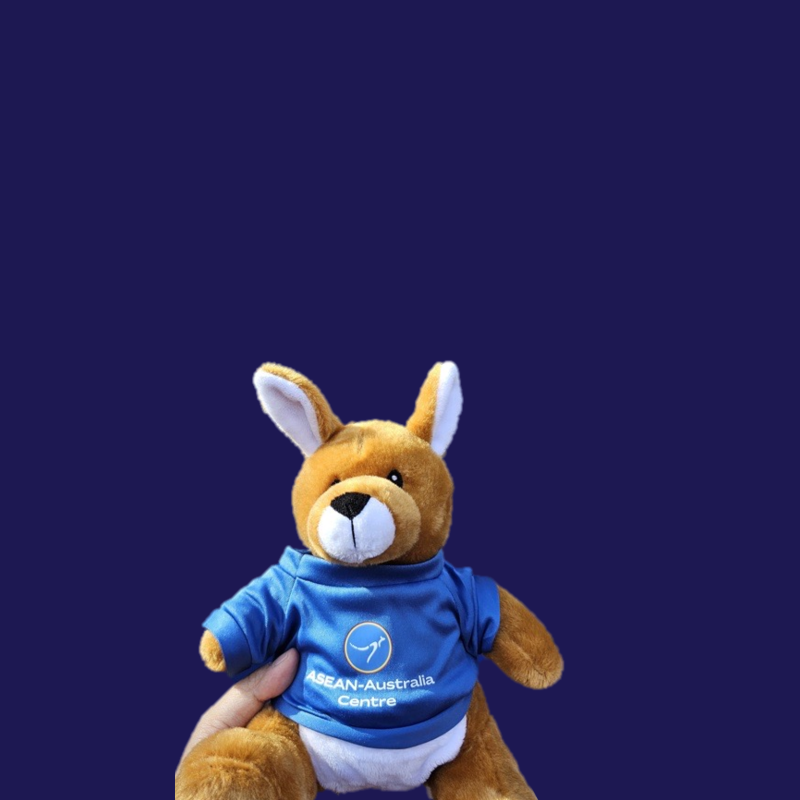When I applied for the Women in STEM Short Course, I was seeking more than just professional development. I was looking for a moment to pause and reflect on why I chose to work at the intersection of science, society, and service.
My journey into the water sector began at an unexpected personal turning point, when I discovered, through research, that water quality can significantly impact not only physical health but also mental wellbeing. That realization transformed what had once seemed like just another development issue into a personal mission: to advocate for accessible, clean water as a foundation for holistic welfare. Still, I knew that passion alone wasn't enough, and I needed to strengthen my capacity to lead, collaborate, and communicate across sectors and borders. The program provided exactly that, and, much to my gratitude, even more.
The first week of the course, in Brisbane, I was reminded of why I fell in love with science in the first place: the excitement of discovery, the energy of collaboration, and the promise of what's possible when disciplines converge. The technical visits and exposure to multidisciplinary research and laboratories helped me reimagine how STEM can be applied to solve complex societal challenges.
Into the second week, in Canberra, that vision expanded. Through policy dialogues and site visits, I gained a deeper understanding of the role diplomacy plays, even in the water sector. A conversation with Fiona Hoggart, the Head of the ASEAN-Australia Centre, stood out to me in particular. Her work highlighted the importance of science diplomacy and helped me reflect on how I could adjust my own diplomatic approach to better serve those in need. It reframed advocacy for me as more than persuasion, but as thoughtful negotiation rooted in empathy, evidence, and trust.
Beyond the content, what left the most lasting impression was the community we built in such a short time. I had the privilege of spending two weeks alongside remarkable women from across ASEAN and Australia, including Meyda and Nacita. Despite coming from entirely different disciplines and sectors, I found a strong kinship in them. Their insight and experience helped me see my work not just as a job, but as a true vocation. Through them, I found both mentorship and sisterhood.
The program's impact didn't end with its final day. Upon returning home, I immediately secured meetings with Australian partners, including the Department of Foreign Affairs and Trade team in Indonesia, to explore collaboration in water accessibility and governance, particularly for rural and remote communities in Indonesia. The experience gave me the confidence and tools to turn conversations into meaningful pathways for partnership. Looking back, the Women in STEM Short Course helped me reconnect with my purpose while equipping me with practical strategies to advance it. It reminded me that leadership in STEM is not only about knowledge, but also about presence, humility, and the willingness to build alongside others.
I’m deeply grateful to the program organisers, facilitators, and fellow participants for creating a space that was not only educational, but transformative. It was an experience that will continue to shape how I lead, collaborate, and grow both in my field and beyond.
To learn more about the Centre's short courses in STEM and resources, click here.
